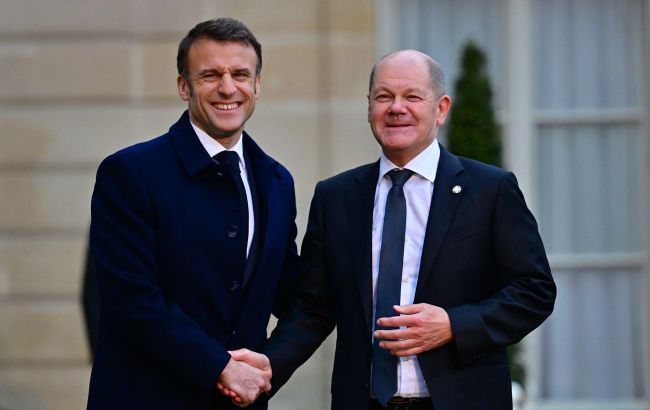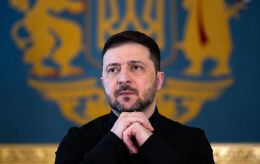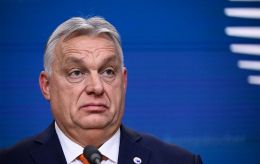Macron and Scholz discussing European air defense initiative
 French President Emmanuel Macron and German Chancellor Olaf Scholz (Getty Images)
French President Emmanuel Macron and German Chancellor Olaf Scholz (Getty Images)
France and Germany are set to unveil plans this week to work more closely to strengthen Europe's air defense. They are responding to pushing for more commitments to EU security after Russia invaded Ukraine, reports Bloomberg.
The initiative is one of several policies, including capital market reform, that German Chancellor Olaf Scholz and French President Emmanuel Macron will discuss on May 28 during the French president's three-day state visit, anonymous sources said.
According to the sources, the options include adding another European air defense system to complement the shorter-term German-led European Sky Shield Initiative (ESSI), which includes Israel's Arrow 3 and US Patriot missiles, as well as the German-made IRIS-T system, and is supported by 21 countries. France, along with Italy, has developed a system known as SAMP-T, or Mamba.
Another possibility would be to join a similar project proposed this month by Greece and Poland, which has the support of European Commission President Ursula von der Leyen. France could also emphasize the role its nuclear deterrent could play in Europe. According to the sources, this could be in addition to work on additional deep strike capabilities.
The sources cautioned that the exact details of the cooperation are still being discussed, but both officials emphasized the importance of Europe demonstrating its strength and commitment to defense before NATO allies meet in Washington in July. France has so far refrained from supporting ESSI, arguing that the EU's solution would be better.
Common defense
Russia's war in Ukraine has prompted the European Union to discuss ways to strengthen common defense while trying to provide Kyiv with additional military supplies, including air defense equipment. Macron said last month that Europe could no longer rely on the American security umbrella and it needed its own robust defense strategy to survive.
Speaking at a press conference in Berlin at the start of his trip on Sunday, the French president said that France and Germany have "historic decisions to make."
Macron said he was confident that his visit would lead to "a true ambition for the defense of Ukraine, the defense and security of our Europe, and building a common defense and security framework, and a common vision for European growth, innovation, and competitiveness that will allow us to face up to the challenges of AI and the climate transition."
The French leader, in particular, is facing pressure to help Ukraine and has irritated some partners by leaving the door open to sending ground troops. Scholz quickly and publicly rejected the idea, exacerbating long-standing tensions between the two leaders that they are now trying to overcome.
At a town hall meeting in Berlin before the French president's arrival, Scholz said that deepening the EU's capital markets would be a priority during this week's meetings.
According to him, the long-awaited single EU capital market will be an important tool for job creation and economic growth. In the past, the two leaders have struggled to find common ground on Macron's push for capital market integration.
In March, European leaders discussed the possibility of issuing joint bonds to pay for defense and asked the European Commission to publish a report containing specific financing options. Last week, EU member states approved a plan to use the profits from frozen Russian sovereign assets to support Ukraine's recovery and military defense.
Polish Prime Minister Donald Tusk said that the EU needed to mobilize at least €100 billion for defense and create a joint air defense system.


